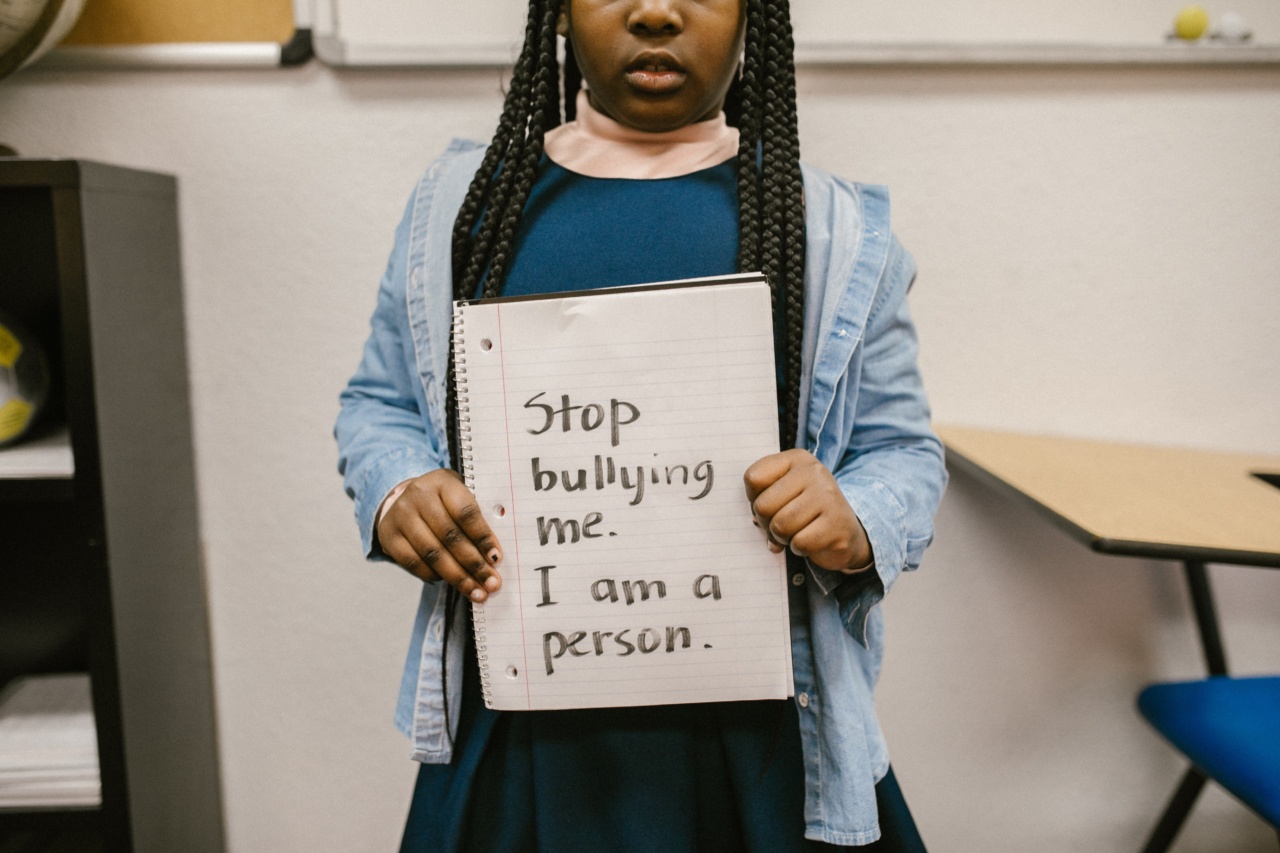Bullying in schools has become a pervasive issue that affects students of all ages, backgrounds, and locations. It is a problem that knows no geographical boundaries and can be found in virtually every school around the world.
In recent years, there has been a growing awareness and concern about the detrimental effects of bullying on the victims, as well as the long-lasting impact it can have on their mental and emotional well-being.
The Different Forms of Bullying
Bullying can take on many different forms, including physical, verbal, and psychological abuse. Physical bullying involves acts of violence or aggression, such as hitting, kicking, or pushing.
Verbal bullying, on the other hand, includes name-calling, teasing, or spreading rumors. Psychological abuse can encompass manipulation, exclusion, or cyberbullying through the use of technology, such as social media or text messages.
The Prevalence of Bullying
According to recent studies, bullying is a widespread problem that affects a significant number of students worldwide. It is estimated that one in three children has experienced some form of bullying at school.
This alarming statistic highlights the urgent need for schools, parents, and communities to address and combat this issue.
The Impact on Victims
The consequences of bullying can be devastating for the victims. Many children who are bullied experience a decline in their academic performance, as well as a loss of interest and motivation in school.
They may also develop low self-esteem, anxiety, and depression, which can persist into adulthood. In severe cases, bullying has even been linked to self-harm and suicidal ideation.
The Role of Schools and Educators
Schools and educators play a crucial role in preventing and addressing instances of bullying. They have a responsibility to create a safe and inclusive environment where all students feel valued and protected.
This can be achieved through implementing anti-bullying policies, conducting regular awareness campaigns, and providing effective interventions when bullying occurs.
The Importance of Parental Involvement
Parents also have a significant role to play in combating bullying. By maintaining open lines of communication with their children and actively listening to their concerns, parents can help identify any signs of bullying early on.
Additionally, parents should encourage their children to speak up about bullying and provide guidance and support when needed.
The Need for Community Support
Bullying is not just an issue that schools and parents need to address; it requires the involvement of the entire community.
By fostering a culture of empathy, respect, and kindness, communities can send a strong message that bullying will not be tolerated. This can be achieved through community events, workshops, and collaborations with local organizations that specialize in anti-bullying initiatives.
The Long-Term Effects
The consequences of bullying can extend far beyond the school years and into adulthood. Many victims of bullying report long-lasting psychological scars that can impact their relationships, career prospects, and overall quality of life.
Therefore, it is crucial for interventions and support for victims of bullying to continue well after they leave school.
The Importance of Empathy and Understanding
In order to tackle the issue of bullying effectively, it is essential for everyone to develop empathy and understanding towards both the victims and the bullies themselves.
It is important to recognize that bullies may be acting out due to their own personal difficulties or insecurities. By addressing the root causes of bullying, we can work towards creating a more compassionate and inclusive society.
Conclusion
Bullying in schools is an unfortunate reality that plagues students worldwide. It is a complex issue that requires a collaborative effort from schools, parents, and communities to combat effectively.
By raising awareness, implementing preventative measures, and providing support for victims, we can create safer and more nurturing learning environments where every child can thrive.































